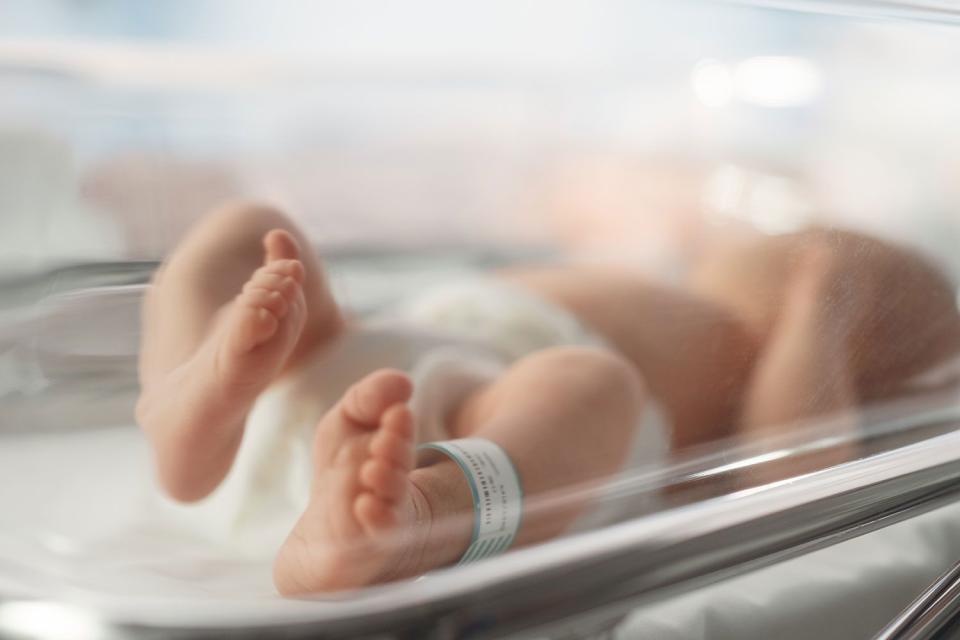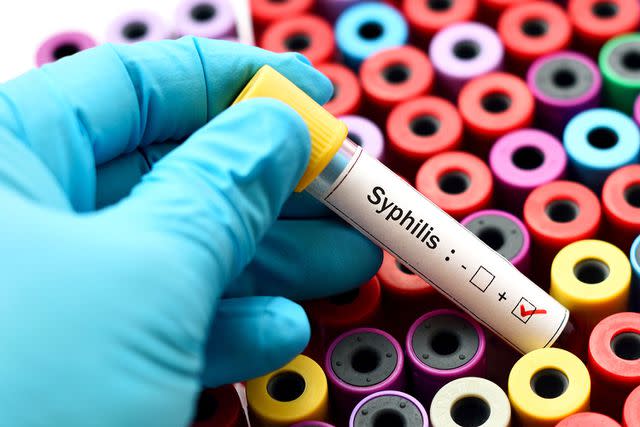Syphilis Cases in Babies Have ‘Skyrocketed’, More Than 3,700 Newborns Tested Positive in 2022
Babies are being born with syphilis at the highest rates in 30 years, according to the CDC

getty
Babies are being born with syphilis at the highest rates in 30 years, according to the Centers for Disease Control and Prevention.
The CDC reported Tuesday that 10 times more babies were born with the disease in 2022 compared to 2012. Calling the over 3,700 newborns who tested positive for congenital syphilis in 2022 “alarming,” the CDC is calling for increased testing and treatment for expecting mothers and their babies.
“The congenital syphilis crisis in the United States has skyrocketed at a heartbreaking rate,” CDC Chief Medical Officer Debra Houry said in a statement. “New actions are needed to prevent more family tragedies. We’re calling on healthcare providers, public health systems, and communities to take additional steps to connect mothers and babies with the care they need.”
Related: Syphilis in Newborns Rose 235% in 4 Years as STD Rates 'Remain Far Too High,' Says CDC
The newly released report stated that the sexually transmitted disease is easily preventable but requires close monitoring and treatment of pregnant women.
“People can experience illness and pass syphilis to their babies during pregnancy,” the report read. “Miscarriage, stillbirth, severe lifelong health problems, and even newborn death can result from syphilis infection during pregnancy.”
It continued: “In 2022, there were 231 stillbirths and 51 infant deaths.”

getty
Those who use substances or have a new sexual partner during pregnancy are listed as being at “high risk for syphilis acquisition,” according to the CDC. Only one medication is currently used to treat congenital syphilis — benzathine penicillin G — which “must be administered as an injection by a trained professional.”
Studies have shown that the medication’s effectiveness is 98%, according to the CDC’s Tuesday report, however, there is a shortage of benzathine penicillin G in the U.S. For this reason, the CDC is asking healthcare providers to prioritize allocation of the treatment to pregnant women.
Related: Why Are So Many People Getting Syphilis? An Expert Explains the Uptick in Cases
Further examination into the 3,700 cases in 2022 showed that 88% of them could have been avoided had there been “timely testing and adequate treatment during pregnancy.” For this reason, the CDC is recommending people get tested beginning at their first prenatal examination, the report said.
“The identification of syphilis during pregnancy should be seen as a high priority for rapid follow-up, with a systematic approach to defining who will be responsible for ensuring timely treatment,” the CDC wrote.
Never miss a story — sign up for PEOPLE's free daily newsletter to stay up-to-date on the best of what PEOPLE has to offer, from juicy celebrity news to compelling human interest stories.
In 2022, almost 40% of cases were in those who received “inadequate treatment,” and 38% of the pregnant people were not under prenatal care. In 2021, the CDC reports Black, Hispanic, American Indian and Alaskan Native newborns were at the highest risk for testing positive for syphilis.
“The congenital syphilis epidemic is an unacceptable American crisis,” said Jonathan Mermin, director of CDC’s National Center for HIV, Viral Hepatitis, STD and TB Prevention. “All pregnant mothers—regardless of who they are or where they live—deserve access to care that protects them and their babies from preventable disease.”
“Our nation should be proactive and think beyond the OB/GYN’s office and bridge prevention gaps. Every encounter a healthcare provider has with a patient during pregnancy is an opportunity to prevent congenital syphilis,” he concluded.
For more People news, make sure to sign up for our newsletter!
Read the original article on People.


